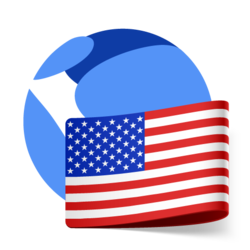
Our last post discussed the importance of smart digital asset regulation and why the U.S. is falling dangerously behind. We are encouraged that some U.S. agencies are acknowledging and welcoming the benefits of this new technology to consumers including the U.S. Consumer Financial Protection Bureau (CFPB) and banks like the U.S. Office of the Comptroller of the Currency. But as a whole, industry participants who are searching for a path to regulatory clarity in the U.S. have been left to parse through an opaque patch quilt of speeches, enforcement actions and dizzying guidance.
When projects and businesses, guided by some of the best legal advice available, still find themselves unclear about the position of U.S. regulators, something is wrong. Regulation, applied consistently, should lead to predictable outcomes, not regulatory “gotchas” that kill innovation.
The key regulatory question in the U.S. today is this: Which digital assets are “securities”? The answer to that question matters significantly. Complex and burdensome securities regulations, when incorrectly applied, smother industry innovation. Imagine imposing laws meant for the transfer of Apple stock to your purchase and sale of an iPhone or, worse, to every text sent or received on your iPhone.
The U.S. Securities and Exchange Commission (SEC) has exempted only two digital assets from the U.S. securities laws—Bitcoin and Ether. For all other assets, the SEC has mostly stayed silent, except when it has decided to regulate certain assets through enforcement proceedings. The net effect is that the SEC has affirmatively placed their good housekeeping stamp of approval on only two digital assets, both controlled by China.
The U.S.-China Tech Cold War
The Chinese government subsidizes the vast amounts of energy needed to fuel Bitcoin and Ether “miners.” At least 65% of Bitcoin mining is concentrated in China. It’s reported that Ether mining also is controlled by China. By controlling these climate destroying protocols, China is directing billions of dollars in mining rewards to China based mining pools. China also can effectively block or reverse transactions.
Is the U.S. really willing to allow China to win this new technological and economic Cold War and, with it, allow China to dictate important parts of a new global payment system? Unfortunately, that is exactly what the U.S. is allowing to happen.
Ceding this innovation to Communist China raises national economic and security concerns. China has already created a domestic oligopoly for digital payments operated through companies like Alipay and WeChat. China also is on the brink of issuing a state-controlled digital currency—a digital yuan.
China’s efforts to control the digital asset space is an extension of their multi-decade effort to erode the U.S. Dollar’s position as the global reserve currency. A China controlled system could be a world where payments are blocked if the originator has too low a “social credit” score; or a world where payments are designed to evade U.S. sanctions and money laundering controls.
These scenarios are not just bad for responsible U.S. economic actors looking for a level playing field on which to compete, it’s damaging for anyone who cares about financial inclusion and developing a responsible economic ecosystem for blockchain and digital assets.
Ripple’s Commitment to Regulation
Responsible industry participants are not seeking to avoid regulation. To the contrary, we are crying out for smart, transparent and principles-based regulation.
At Ripple, we actively urge legislators to support regulation that does not disadvantage responsible U.S. companies. Our goal is to improve the financial system from within, working with regulators, governments and central banks alike to improve the way the world moves money.
To learn more about our efforts to push forward crypto regulation in the U.S., read our open letter to Congress signed by Ripple CEO Brad Garlinghouse and Executive Chairman and Co-founder Chris Larsen. And for even more insights around regulation, listen to my recent appearance on the Block Stars podcast.












